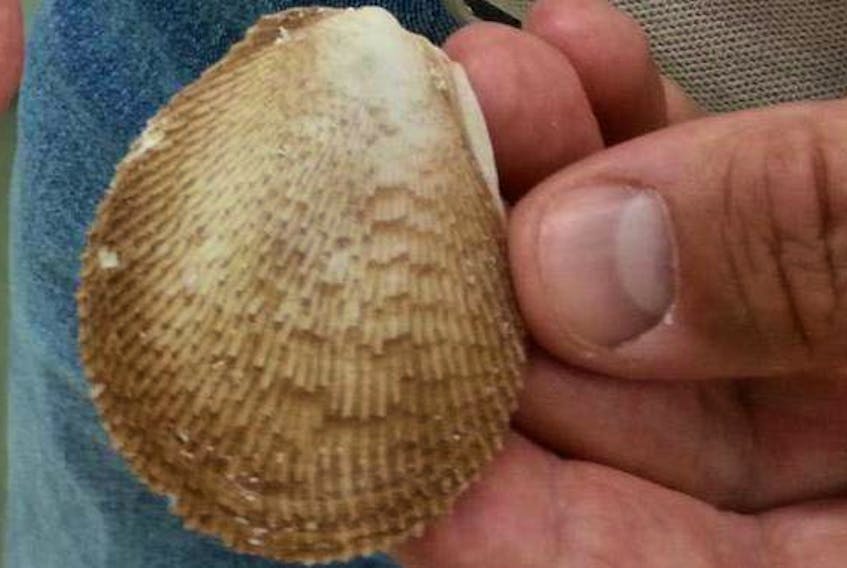Wela’lin.
I am the Saqamaw (Chief) of the Miawpukek First Nation at Conne River. We are a small Mi’kmaq band on its southwest coast who, since Confederation in 1949, are struggling to replace our lost traditional economy, struggling to be self-sufficient, and struggling to find our rightful place in Canadian society.
Our community is directly adjacent to fishing areas that make up the very topical Arctic surf clam fishery. This fishery, approximately 45,000 metric tonnes annually, is presently prosecuted by one company as a total monopoly.
This represents one of the best potential economic opportunities available in a long time for Indigenous people in Newfoundland and Labrador.
Recently the federal Fisheries Minister Dominic LeBlanc announced reconfiguring access to the Arctic surf claim industry by introducing a fourth licence from applicants who must be an Indigenous entity. This represents one of the best potential economic opportunities available in a long time for Indigenous people in Newfoundland and Labrador. In response to this encouraging opportunity, we have formed a partnership with the other First Nations in Newfoundland and Labrador — Qalipu First Nation and Innu Nation — to jointly pursue a promising economic opportunity in an Arctic surf clam licence which would be 100 per cent owned by this First Nations partnership (FN-NL).
On Sept. 7, Minister LeBlanc is quoted as saying, “This is the first time that an Indigenous community will be able to participate in an offshore fishery. Enhancing access to this fishery within the current total allowable catch provides an opportunity to broaden the access and benefits from this public resource while respecting the best available science. Today, we are taking a powerful step toward reconciliation.”
My thoughts are that this is a definite step in the right direction and yes a powerful step in reconciling the past and in closing the gap between Indigenous communities and the rest of Canada. These are truly historic times. The Miawpukek First Nation has an inshore commercial fishery that has enjoyed moderate success. We have a growing human resource pool of commercial fishers and have other N.L. First Nations, who are also heavily involved in the fishery, willing to partner with us in making the Arctic surf clam licence application. Further, we have an industry partner who can help us attain the capacity and skills to effectively run a harvesting and processing operation.
We prepared a strong and very compelling proposal and submitted it on Nov. 2. We issued a press release announcing our partnering with the Qalipu Mi’kmaq First Nation and the Innu Nation of Labrador as Indigenous entity vying for the Arctic clam licence. Partnering with two other First Nations and the potential positive impact of surf clam access is truly historic. Our proposal will see 100-plus new jobs created in harvesting and processing, all in Newfoundland Labrador, with a 25 to 30 per cent initial employment target for Indigenous members.
We plan to process 100 per cent of the clams in N.L. and we are in discussions with the town of Burin to use the former High Liner fish plant there.
Other announced applicants are either wholly or largely based in other provinces, and we are encouraging N.L. politicians to support adjacency and Indigenous access similar to their recent support in the recent last in/first out shrimp debate.
Consequently, on Dec. 5, Chief Brendan Mitchell, Grand Chief Gregory Rich and I met with the Newfoundland and Labrador MP caucus in Ottawa to discuss reconciliation, surf clams and how obtaining a surf clam licence will benefit Newfoundland and Labrador as a whole. We are very grateful to the Newfoundland and Labrador MP caucus in taking the time to listen to our hopes and plans for an Arctic surf clam licence.
The federal government is doing its part in making a historic decision to grant a successful Indigenous group a fourth Arctic surf clam licence. An open, transparent and merit-based selection process that creates a truly new (adjacent and indigenous) participant in the clam fishery will be the capstone on this worthwhile initiative and a right step towards real and meaningful reconciliation.
Saqamaw Misel Joe
Miawpukek First Nation









